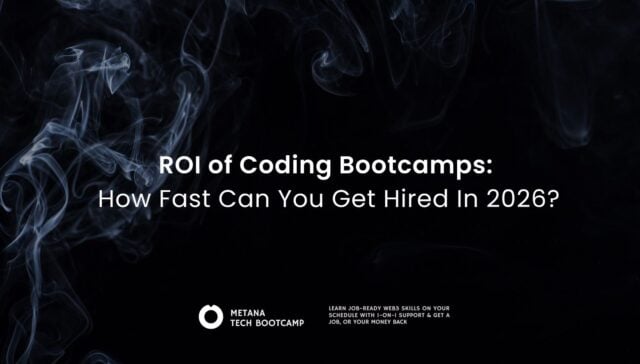TL;DR
- Analyst business intelligence jobs focus on collecting, analyzing, and interpreting data to fuel smarter business decisions.
- BI analysts are essential across industries like finance, healthcare, retail, tech, and manufacturing where data drives competitive advantage.
- The key difference from data analysts: BI analysts translate data into insights that directly impact strategy, KPIs, and profitability.
- Core responsibilities include data integration, cleaning, dashboard/report building, KPI analysis, and stakeholder communication.
- Success requires both technical skills (SQL, Power BI, Tableau, Python/R, statistics) and soft skills (communication, problem-solving, data storytelling).
- Salary growth is strong: entry-level starts near $65K, mid-level averages around $100K, and senior roles exceed $120K+.
- Geography matters — top pay in San Francisco, DC, and Seattle, but remote-first roles often match or exceed big-city compensation.
- Career paths progress from Junior BI Analyst → Senior Analyst → Manager → Director/Chief Data Officer, with emerging specializations like real-time analytics and machine learning integration.
What Are Analyst Business Intelligence Jobs?
Analyst business intelligence jobs focus on collecting, analyzing, and interpreting business data to help organizations make smarter decisions. These professionals serve as the critical link between raw data stored in company systems and executive leadership who need clear, actionable insights to guide strategy.
What Are BI Analysts?
BI analysts are most valuable in data-rich industries where strategic decisions carry high stakes. Financial services rely on them for risk assessment and market analysis. Healthcare organizations use BI analysts to track patient outcomes and operational efficiency. Retail companies depend on them for inventory management and customer segmentation. Technology firms need them for user behavior analysis and product optimization.
Manufacturing companies use BI analysts for supply chain optimization and quality control monitoring. The common thread? These industries generate massive amounts of data that require expert interpretation to maintain competitive advantage.
Key Differences Between Data Analyst and Business Intelligence Analyst
The key difference between a Business Intelligence Analyst and a general Data Analyst lies in business focus and application. While data analysts might work on research projects or academic studies, BI analysts specifically concentrate on business metrics, performance indicators, and operational data that directly impacts company profitability and growth.
| Aspect | Data Analyst | Business Intelligence Analyst |
|---|---|---|
| Primary Focus | Explores and interprets data for research, patterns, and insights. | Translates business data into insights that directly support strategic decisions. |
| Scope of Work | Can work in various domains (research, science, academic, or business settings). | Focuses specifically on business metrics, KPIs, and operational performance. |
| End Goal | Understand data trends and answer broad questions. | Drive company growth, efficiency, and profitability through data-backed decisions. |
| Deliverables | Reports, statistical models, visualizations. | Dashboards, business reports, executive summaries, performance tracking. |
| Impact | May inform projects or studies. | Directly influences business strategy and competitive advantage. |
Roles and Responsibilities of a BI Analyst
The daily work of a BI analyst spans multiple technical and strategic functions. Here’s what you’ll actually do in this role:

- Collecting and integrating business data from multiple sources including customer relationship management systems, enterprise resource planning platforms, web analytics tools, and external market data providers. This involves understanding different data formats, APIs, and database structures to ensure comprehensive data coverage.
- Cleaning and preparing datasets by identifying data quality issues, handling missing values, removing duplicates, standardizing formats, and validating accuracy. You’ll spend significant time ensuring data reliability before analysis begins.
- Building dashboards and reports using tools like Power BI, Tableau, or Looker to create visual representations of key business metrics. These aren’t just pretty charts – they’re strategic tools that executives use to make million-dollar decisions.
- Analyzing trends and KPIs through statistical analysis, forecasting models, and cohort studies to identify patterns that impact business performance. You’ll track metrics like customer acquisition cost, lifetime value, churn rates, and revenue growth.
- Presenting findings to stakeholders by translating complex analytical results into clear, compelling presentations for audiences ranging from department managers to C-level executives. Your insights drive budget allocation and strategic planning.
- Collaborating with cross-functional teams including marketing, sales, finance, and operations to understand their data needs, provide customized analysis, and ensure insights are implemented effectively across the organization.
Skills Needed for Analyst Business Intelligence Jobs
Success in BI analyst roles requires a carefully balanced combination of technical expertise and business communication skills. The variety keeps the work engaging. One day you might be analyzing customer churn patterns for the marketing team, the next you’re building executive dashboards tracking quarterly performance across all business units. If you’re serious about a BI career, start practicing with hands-on business intelligence challenges designed to turn theory into practical experience.
| Category | Skill | Description |
|---|---|---|
| Technical Skills | SQL & Excel | Core tools for querying databases, cleaning data, and reporting. |
| Power BI / Tableau | Build dashboards and reports that drive strategic decisions. | |
| Python or R | Advanced analytics, automation, and predictive modeling. | |
| Databases & ETL | Manage pipelines, warehouses, and large-scale data integrations. | |
| Statistics | Hypothesis testing, regression, and data modeling for deeper insights. | |
| Soft Skills | Communication | Explain technical insights in simple, business-friendly language. |
| Business acumen | Understand how data connects to goals, markets, and competitive advantage. | |
| Problem-solving | Break down complex business issues into manageable analytical questions. | |
| Critical thinking | Validate data sources, challenge assumptions, and ensure accuracy. | |
| Data storytelling | Turn numbers into compelling narratives that inspire action. | |
| Project management | Balance multiple priorities, deadlines, and cross-team collaboration. |
To succeed in analyst business intelligence jobs, you need a balance of technical expertise and soft skills. Technical skills ensure you can work confidently with data, tools, and analytics, while soft skills help you translate those insights into strategies the business can act on.
Salary Snapshot in 2025
Analyst business intelligence jobs offer competitive compensation that varies significantly based on experience level, geographic location, and industry specialization.
Entry-Level Compensation
Entry-level Business Intelligence Analysts with less than 1 year experience earn an average total compensation of $65,489, making it an attractive field for recent graduates and career changers. Entry-level positions typically range from $60,000 to $75,000 annually.
These positions often come with additional benefits including health insurance, retirement matching, professional development budgets, and flexible work arrangements that add significant value beyond base salary.
Mid-Level and Senior Salaries
Career progression brings substantial salary increases. The average Business Intelligence Analyst salary is $99,864 per year, while Glassdoor reports an average of $115,892 per year for experienced professionals.
Senior BI analysts can earn between $38K-$160K, with an average of $88,015, though top performers in major markets regularly exceed $120,000 annually.
Here’s a realistic salary progression table:
| Experience Level | Salary Range | Key Responsibilities |
|---|---|---|
| Entry (0-2 years) | $60,000-$75,000 | Report creation, data cleaning, basic analysis |
| Mid-level (3-7 years) | $80,000-$110,000 | Dashboard design, trend analysis, stakeholder presentations |
| Senior (8+ years) | $120,000-$160,000+ | Strategic analysis, team leadership, advanced modeling |
Geographic and Remote Variations
Business intelligence analyst salaries vary by location. The top-paying U.S. cities are:
- San Francisco, CA
- Washington, DC
- Seattle, WA
Remote roles are also growing quickly. Many companies now hire BI analysts in “remote-first” positions that match or exceed big-city pay. In some cases, remote BI jobs pay 10–20% more than local market rates, giving professionals the chance to earn top salaries without relocating.
Business Intelligence Analyst Job Market Overview
Current Employment
As of 2025, there are approximately 124,916 Business Intelligence Analysts employed in the United States, according to data from Zippia.
Projected Job Growth
The job market for Business Intelligence Analysts is projected to grow by 21% from 2018 to 2028, adding approximately 284,100 new jobs over this period. This growth rate significantly exceeds the average for other occupations, reflecting strong demand for data-driven decision-making across industries such as finance, healthcare, and technology.
Market Context
The Business Intelligence (BI) market is expanding, with the U.S. market valued at $8.73 billion in 2024 and projected to reach $22.25 billion by 2034, growing at a compound annual growth rate (CAGR) of 9.8%. This supports the increasing demand for BI Analysts, who are critical in leveraging tools like SQL, Power BI, and Tableau to drive insights.
Career Progression Timeline

A typical BI analyst career progression follows this timeline:
Years 1-2: Junior BI Analyst Focus on data collection, report generation, and basic dashboard creation. Learn company data systems and business processes while building foundational technical skills.
Years 3-5: BI Analyst Take ownership of more complex analyses, present findings to management, and begin specializing in specific business areas or analytical techniques.
Years 6-8: Senior BI Analyst Lead analytical projects, mentor junior team members, and contribute to strategic planning processes. Often specialize in advanced techniques like predictive modeling.
Years 9-12: BI Manager or Analytics Lead Manage analytical teams, set departmental priorities, and work directly with executive leadership on strategic initiatives.
Years 12+: Director of Analytics or Chief Data Officer Shape organization-wide data strategy, oversee multiple analytical teams, and drive digital transformation initiatives.
Emerging BI Specializations
The field is rapidly evolving, creating new specialist roles within business intelligence:
Analytics Translator professionals bridge the gap between technical teams and business stakeholders, focusing primarily on communication and project management rather than hands-on analysis.
Self-Service BI Specialist experts help business users create their own reports and dashboards, reducing dependence on IT teams while maintaining data governance standards.
Real-Time Analytics Specialist professionals work with streaming data and immediate response systems, particularly valuable in e-commerce and financial services.
Trending skills include Predictive Analytics and Real-Time Data Processing, while emerging skills focus on Machine Learning and Big Data Technologies.
PRO TIP: Specializing in emerging areas like real-time analytics or machine learning integration can command 20-30% salary premiums over generalist positions.
Next Steps to Grow in Analyst Business Intelligence Jobs
Analyst business intelligence jobs are expanding quickly, offering opportunities across industries from finance to healthcare to tech. To succeed, you’ll need to combine technical skills with strong business acumen, build a portfolio that demonstrates your impact, and stay committed to continuous learning.
Want to dive deeper? Explore Metana’s library of career insights, learning tips, and practical guides to help you navigate the path to becoming a data-driven professional.
Frequently Asked Questions

What is a Business Intelligence Analyst?
A Business Intelligence Analyst turns raw data into insights. They collect, clean, and interpret information, then create dashboards and reports. By identifying trends and patterns, they help businesses make smarter decisions and improve strategy.
What does it take to become a Business Intelligence Analyst?
To become a Business Intelligence Analyst, you need strong data skills such as SQL, Excel, Tableau, Power BI, and Python, along with problem-solving ability and business knowledge. Clear communication is essential, and many begin with projects, internships, or bootcamps to build practical experience.
How much does a Business Intelligence Analyst earn?
Salaries vary by level and industry. Entry-level BI Analysts typically earn between USD 60,000–75,000 annually, mid-level professionals can earn 80,000–100,000, and senior analysts often exceed 120,000. Industries such as finance, healthcare, and technology generally offer higher pay.
What qualifications do you need to be an Intelligence Analyst?
Most roles require a bachelor’s degree in information technology, business, statistics, or a related field. Certifications in Power BI, Tableau, or data analytics add credibility. Practical experience through projects, hackathons, or bootcamps is often as valuable as formal qualifications.







